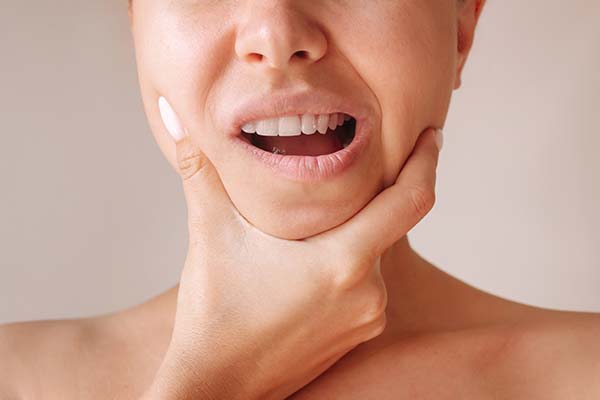Dental Botox® for TMD Pain Relief

Dental Botox® is an alternative treatment approach for TMJ disorder and related pain and jaw tension. The treatment entails injecting Botox into the facial muscles causing the pain and soreness. The injection can also alleviate headaches caused by teeth grinding and a locked jaw. This article talks about the use of dental Botox® for relieving TMJ pain.
Treating TMJ pain and jaw tension with dental Botox®
The temporomandibular joint (TMJ) is positioned on both sides of the head, where the jawbone connects with the skull. The TMJ enables eating, swallowing, talking, and other routine activities that involve the mouth. If the joint becomes dislocated or stressed due to excessive teeth grinding, the patient may experience severe tension headaches and sharp pains around the jaw. Botox relieves the tension in the jaw by relaxing the muscles, thus preventing powerful, usually unintentional movement of the jaw.
The Botox treatment approach for TMJ pain relief is typically fast, straightforward, and effective. The procedure is non-surgical and minimally invasive. The injection will be administered in the dental office and performed on an outpatient basis. Most patients observe remarkable improvement after about a day or two following treatment, but complete relief may take about a week.
What to expect
The duration of dental Botox treatment depends on the required number of injections. However, the treatment procedure can be finished in about 10 to 30 minutes. Only the muscles that are injected will become relaxed. Botox for TMJ treatment will not affect any other part of the body. The dentist will usually inject the temporalis, masseter, frontalis muscles, with the inclusion of other injection sites depends on the severity of the pain and headaches.
The procedure is mostly painless, and the only discomfort might be from the injection, which is usually minor and brief. Patients sometimes describe the Botox injection pain as a prick or bug bite. The dentist can reduce the pain from the injection by using a local anesthetic or cold pack to numb the area. Patients who are scared of the needle need to inform the dentist.
After the treatment, the muscle pain and tenderness should start to diminish almost immediately. Since the treatment is non-invasive and non-surgical, patients can quickly return to their routine soon enough. However, patients need to avoid rubbing or massaging the injection site to prevent the Botox from spreading to other muscles. They also need to reduce physical activity for a while.
Aftercare and risks
The results of Botox treatment can last up to five months, so it is advisable to undergo regular treatment to prevent the pain from returning. Due to the non-invasive nature of the treatment, the risks are minimal. However, some patients may react harshly to the injections and experience symptoms such as headaches, nausea, and muscle weakness, but these usually stop within one week after treatment.
Do you suffer from TMJ disorder?
When patients opt for dental Botox®, the dentist will examine their condition to know whether they are eligible for the procedure. The use of Botox® for TMD pain relief has been shown to be effective. To learn more about the procedure, book an appointment today to get started.
Request an appointment here: https://spectrumsurgical.net or call Facial Spectrum at (816) 524-4334 for an appointment in our Lee's Summit office.
Check out what others are saying about our dental services on Yelp: Botox in Lee's Summit, MO.
Recent Posts
The jawbone is the part of the face that holds many essential elements together, such as the teeth, ligaments, and muscles; however, bone grafting may sometimes be necessary if the jawbone is too weak to perform these tasks. A person’s jawbone can deteriorate over time, whether due to age, genetics, poor oral health, cancer, or…
Finding lasting relief from issues such as misalignment and facial asymmetry can involve specialized procedures. Fortunately, corrective jaw surgery is a reliable option for addressing these concerns. A dental specialist realigns the upper or lower jaw during this process to promote better function and comfort. Although the procedure can benefit health and appearance significantly, a…
Many individuals seek rhinoplasty to enhance facial harmony, improve nasal function, or correct structural abnormalities. As a surgical procedure that reshapes the nose, rhinoplasty can address aesthetic concerns as well as breathing difficulties caused by structural defects such as a deviated septum. Understanding the consultation process, surgical techniques, and what to expect from the recovery…
The facelift is one of the oldest and most well-known cosmetic surgeries for restoring a youthful appearance to the face. If you are considering this procedure, it is important to understand the steps of the process and the time commitment involved. The specifics of the process can vary depending on the patient; however, here is…


